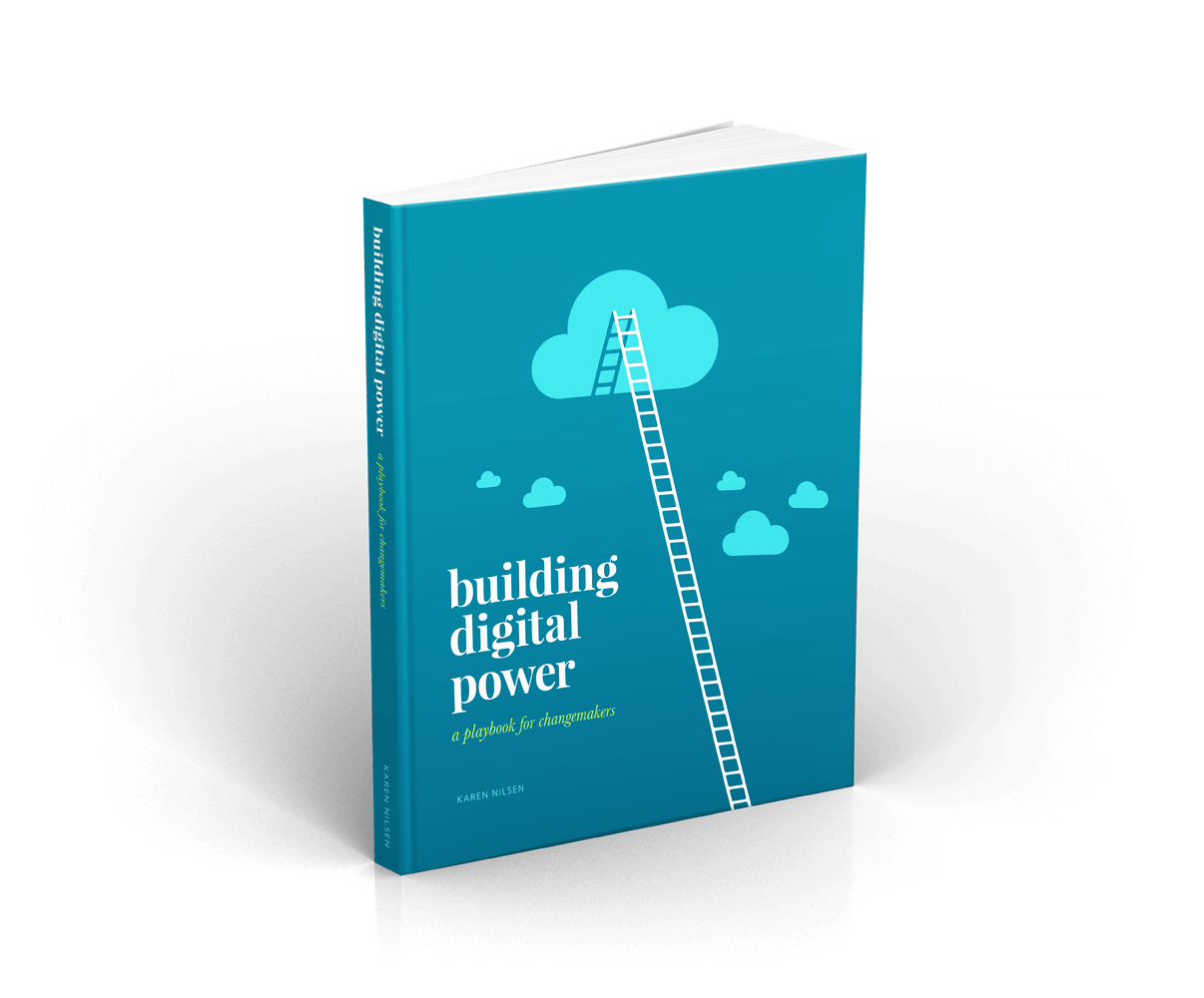A Beginner’s Guide to SEO (Search Engine Optimization)
If the currency of the Internet is web traffic, then search engine referrals are money trees. Google alone fulfills 3.5 billion search queries per day. This “free” traffic has become such a valuable Internet commodity, that Search Engine Optimization is now big business. Ironic? Perhaps.
If you publish web content in 2026, you can’t afford to ignore SEO. To some, SEO is a rabbit hole with no end. To the rest of us, however, the basics are easy enough to master.
- Where SEO applies: Any freely available, public-facing webpage. For example, your homepage, online educational resources, your campaign websites, etc.
- Where SEO doesn’t apply: Emails, social media, protected webpages (i.e. those that require a password to access).
Search engines use little programs called web crawlers to scan and index your website. When crawlers encounter links, they follow them to discover new pages. This is how they ‘crawl’ the Internet.
Search engines are your friend. Their job is to connect search users with what they’re looking for. They will index just about anything, but what they’re really trying to do is upweight relevant, quality search results and downweight the crappy ones. They’ve designed their algorithms around this principle. That’s where you come in.
SEO is the practice of helping search engines recognize quality web content
How are you supposed to help a search engine do anything? You start by understanding how search engines think. Then, you offer them what they’re looking for. Let’s get started.
On-page: what to focus on
When a web crawler hits your website, it doesn’t just see what you see, it’s mostly seeing your HTML source code. Whether or not you’re familiar with HTML, there are things you can do to make your source code ‘friendlier’ to search engines. Here’s what to focus on.
- Keywords. Think about the search terms someone might use if they were looking for your webpage. Get specific. General terms like “animal” or “cat” have a lot of competition. Your chances of ranking well for these terms are slim to none. Your chances of ranking well for “animal rescue [your town]” or “building a DIY cat run” are better. Consider what unique proposition your page offers, and identify keywords to suit. Ensure that those keywords make an appearance throughout your webpage text. As far as SEO ‘rabbit holes’ go, this is a big one. If you’re brave, feel free to dive into some more advanced keyword strategies.
- URLs. Every URL (or web address) is made up of several parts. Both your domain name and internal page URL can impact your search ranking.
- Meta tags. Meta tags are hidden tags that sit inside the header of your webpage. They define things like your web page title, your keywords, and your page description. If you use a Content Management System (CMS), you might never see this code. That’s fine—you’ll have a different way to fill in these details. List your keywords in the keywords meta tag, separated by commas. Not every search engine reads the keywords meta tag—but some do, so it’s best to include it. Use some keywords (or related words) in your page title and page description, too. Your title and description can appear in search results, so write them with prospective visitors in mind.
<title>What’s life like for a battery hen?</title>
<meta name= “keywords” content= “Battery hen, caged hen, cage eggs, chicken cruelty, laying hens, animal cruelty, animal welfare, living conditions”>
<meta name= “description” content= “Hens trapped in cages have no quality of life. Here’s how animal welfare is compromised in the cage egg industry.”> - Good markup. Web visitors and web crawlers alike will appreciate clear information hierarchy. Use standardized heading and subheading elements such as <H1>, <H2>, and <H3> tags to break up your page. Because they hold more ‘weight’ on your page, these elements also hold more weight with search engines. Include keywords in these heading elements when appropriate.
- Alt text. Alt text is short for “alternative text”. The purpose of alt text is to describe the content of an image. Alt text can be found in HTML source code, inside image tags. Image tags with descriptive alt text benefit your visually impaired visitors, allowing them to gain meaning from visual content. Alt text also helps search engines understand the relevance of images on your page. If an image depicts something relevant to your keywords, include keywords in your alt text.
- Link text. The clickable text you use to link one page to another sends a strong signal to search engines about the topic of the target page. When cross linking pages on your website, choose meaningful link text.
Hackers famously exploited this phenomenon in 2006 when they pointed thousands of webpages to the Wikipedia profile of George W. Bush using the link text “miserable failure”.
 While the term “miserable failure” never appeared on the Wikipedia entry, inbound links alone pushed the page to the #1 spot on Google.
While the term “miserable failure” never appeared on the Wikipedia entry, inbound links alone pushed the page to the #1 spot on Google.
Off-page: what to focus on
One word: backlinks. What makes backlinks (or ‘inbound links’) so important? Whenever you link to someone else’s website, you’re effectively endorsing their content. If a reputable website endorses your content, a little bit of their reputation rubs off on you. Higher rep = higher ranking. Simple as that.
A few good backlinks from reputable sites are enough to give your search rankings a kick. Go for links on static webpages, news stories, and blogs. These hold more power than links on message boards and social media. Context matters. Links from on-topic pages will benefit you more than links from unrelated sites. Link text also matters. Those link text tactics you’ve applied on your own website will work here, too.
Create quality content
If you forget every other rule, remember this one. Make your page with your supporter in mind. Write original, high quality copy. Design engaging action pages. Create a rewarding experience—something your supporters want to spend time with, share, and come back to.
Fast-track your digital strategy learning curve.
Free eBookThe golden rule of search engine optimization: put your visitor first
It may surprise you that in addition to a secretive algorithm, Google relies on real humans to quality check the pages in their index. You can even read Google’s internal guidelines that reveal how pages are judged. It’s a long document but the gist is simple: design for humans and prioritize original, reputable, quality content.
Two technical considerations*
Not a ‘technical’ person? Not to worry. These are things your web developer should take care of. However, they’re that important that they’re worth double checking.
- Make it secure. Google penalizes pages that fail to protect their visitors with encryption. How to check: load up your website and look for the presence of a padlock icon in your address bar. If instead you see a broken padlock icon or words like “not secure”, you have a problem.

- Make it mobile-friendly. Mobile devices account for roughly half of all web traffic worldwide. Search engines therefore prioritize websites that are ‘friendly’ to mobile devices. How to check: load up your page on your phone. If you can comfortably read all content without zooming or scrolling horizontally, your page is mobile friendly. If not, talk to your web developer.
*Any SEO experts will be screaming that there are way more than two technical things to consider when optimizing a website. They’re right. You can nerd out over technical SEO for days. Knock yourself out.
Five things you should NEVER do
Webmasters have been trying to outsmart search engines for decades. And search engines have been thwarting their every move. Thinking you can cheat the system is a rookie mistake—and it’ll cost you.
- Don’t stuff your page full of keywords. It’s called ‘keyword stuffing’, and it won’t help. Littering your page with an inorganic volume of keywords is a red flag to search engines. And because it doesn’t read nicely, it breaks the golden rule of SEO: put your visitor first.
- Don’t mislead. A headline that’s designed to attract clicks—but that doesn’t authentically represent your page—is bad news. If people hit your page expecting one thing, and get something else, they’ll leave. Don’t think you can be ‘cute’ by using tongue-in-cheek bait-and-switch tactics. Clickbait erodes trust and wastes everyone’s time. Don’t do it.
- Never trust an ‘expert’ who guarantees you a first page ranking. They’re lying. Such promises usually point to someone who’s involved in super shady tactics. Don’t let them near your website. The only way anyone can guarantee you a place on the first page of search results is by buying ads. That’s expensive—and it’s not SEO.
- Never agree to ‘reciprocal link’ exchanges from unrelated websites. They’ll promise you high value inbound links. That’s good for SEO, right? Not always. Context matters. Links from unrelated websites will do little to help you rank well for relevant keywords. Chances are, when someone offers you a reciprocal link, they’re trying to recruit you to fuel their own dodgy SEO practices. Steer clear. Ultimately you want people to link to your website because they value your content. Focus on quality and the links will come.
- Never believe random people who email you about your search rankings. They’ll pose as an SEO ‘expert’ (they’re not). They’ll claim to have visited your website (they haven’t). They might even name your website and include a snapshot of your homepage (a bot can do that). Don’t fall for it. Sadly, the moment you launch a website, predatory SEO scammers will put a target on your back. To protect yourself, ask yourself, “do I know this person?” If not—hit delete—it’s spam. If in doubt, reach out to a real SEO expert.
Rule of thumb: avoid shady SEO tactics and those who use them. When you turn on search engines—search engines turn on you. Cheaters’ websites get deleted from indexes. That’s a hard and lonely place to come back from.
One final word of warning. While it usually takes effort to make your content visible to search engines, don’t make the mistake of thinking you can hide content from them. Sensitive content is always vulnerable to being crawled and indexed—even if you’ve been cautious to avoid inbound links. If the idea of seeing your unreleased, unfinished, or embargoed content pop up in search results sends you into cardiac arrest—don’t publish it online. If you can’t avoid this, then password protect your content until it’s ready for release.
Handy tools
Have patience
Don’t panic if you’ve done all the right things and aren’t seeing results. Good SEO takes time. There are no ‘quick fixes’ when you’re marching to the beat of a search engine’s drum. Approach SEO with integrity. Be consistent. Set a standard. Apply basic SEO principles every time you produce new web content. Make sure everyone who produces content alongside you understands these expectations, too.
Play the long game. In time your efforts will be rewarded.
Was this tip useful?


Get a free weekly digital strategy tip:
Unsubscribe any time. We respect your data. View the privacy policy.
Like this tip? Share it!






